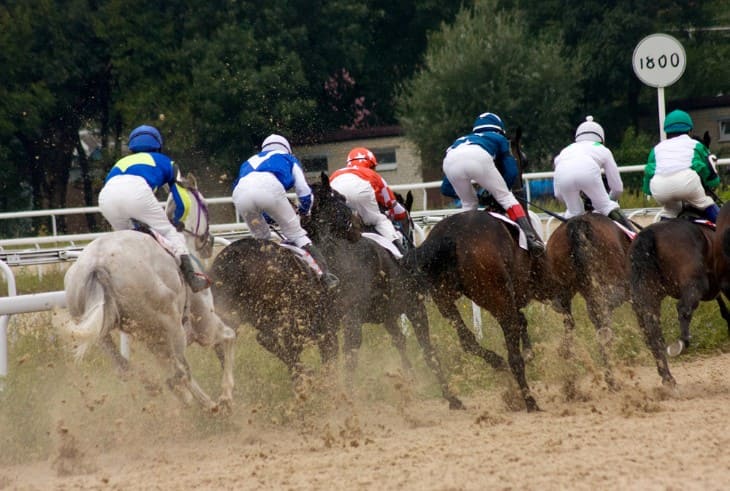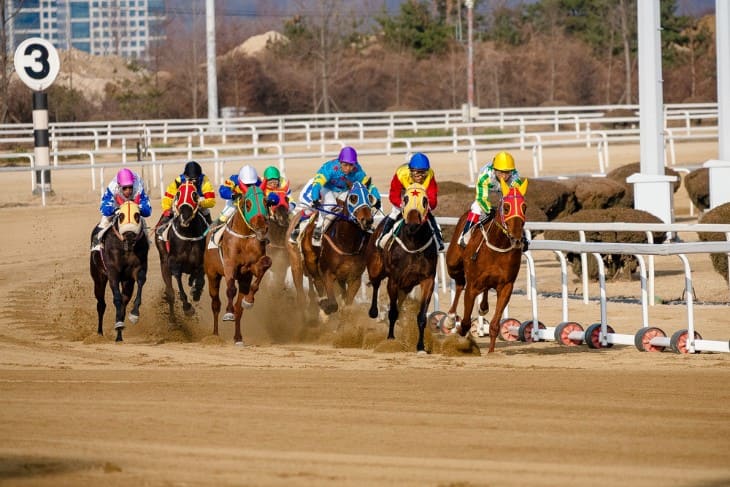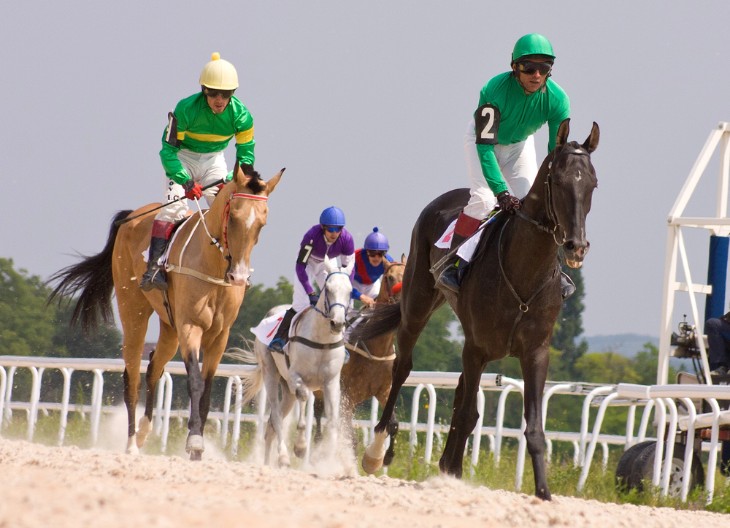- Governance and Regulation in Horse Racing
- The Jockey Club's Financial Impact on the Industry
- Training and Certification of Jockeys
- Horse Welfare and Safety Measures
- The Jockey Club's Role in Breeding Regulation
- Global Influence and International Partnerships
- Community Outreach and Charitable Activities
- Challenges and Controversies Facing the Jockey Club
- Future Prospects and Strategic Directions
- Conclusion
Established in 1750, the Jockey Club began as a high-society club for elite horse racing enthusiasts. Over the centuries, its role has evolved significantly, moving from a social club to a governing body. This transition marked a pivotal moment in the sport, as the Jockey Club began to set the rules and standards for horse racing in Britain.
Its influence during the 18th and 19th centuries was unmatched, establishing many of the racing protocols still in use today. The Jockey Club's early regulations focused on ensuring fair play, setting race conditions, and establishing breeding standards. These foundational policies laid the groundwork for modern horse racing and have been instrumental in maintaining the integrity and prestige of the sport.
Governance and Regulation in Horse Racing
The Jockey Club's role in governance and regulation is pivotal to maintaining the integrity of horse racing in the United Kingdom. Its scope of responsibilities includes, but is not limited to:
- Racecourse Management: The Jockey Club oversees several racecourses across Britain, ensuring they meet specific standards for safety and quality. This management includes track maintenance, spectator facilities, and the overall racing experience.
- Rule Enforcement: Upholding the rules of racing is a key function. The Jockey Club ensures compliance with regulations, addressing any breaches swiftly and fairly. This aspect is crucial for maintaining the sport's credibility.
- Licensing and Regulation: It is responsible for licensing jockeys, trainers, and other racing professionals. Ensuring that all participants meet high professional and ethical standards is vital for the sport's integrity.
- Horse Welfare: The Jockey Club plays a significant role in promoting and ensuring the welfare of horses. This includes setting standards for horse care, both on and off the racecourse, and implementing welfare policies.
The governance and regulatory role of the Jockey Club extends beyond mere enforcement. It is also instrumental in shaping the future of the sport, adapting and revising regulations in line with new challenges and developments within horse racing. This proactive approach ensures that the sport continues to evolve while maintaining its rich heritage and integrity.
The Jockey Club's Financial Impact on the Industry
The Jockey Club has a significant financial impact on the British horse racing industry, one that extends far beyond its direct operations. As a key player in the industry, it contributes substantially to the economy through various channels. Firstly, the Jockey Club's management of racecourses generates considerable revenue, not just from racing activities but also from hosting events and conferences. This revenue stream is vital for the maintenance and improvement of facilities, which in turn enhances the overall quality of the racing experience.
Additionally, the Jockey Club plays a crucial role in the distribution of prize money, which is a fundamental element of the racing industry. The allocation of these funds not only rewards excellence but also encourages investment in horse breeding and training. This investment cycle stimulates economic activity within the broader equine industry, impacting breeders, trainers, and a myriad of associated businesses.
Training and Certification of Jockeys
The Jockey Club is instrumental in the training and certification of jockeys, ensuring high standards of professionalism and skill in the sport. This process encompasses several key areas:
- Education and Training Programs: The Jockey Club provides comprehensive training programs for aspiring jockeys. These programs cover both practical riding skills and theoretical knowledge, including horse care, racing rules, and health and safety procedures.
- Licensing Process: Before becoming professional jockeys, candidates must undergo a rigorous licensing process. This process ensures that only those with the requisite skills and knowledge are permitted to race.
- Continued Professional Development: The Jockey Club also mandates continued education for licensed jockeys. This requirement ensures that jockeys stay updated with the latest practices and regulations in the sport.
- Welfare and Support Services: Recognising the physical and mental challenges faced by jockeys, the Jockey Club provides welfare and support services. These services aim to promote the well-being of jockeys throughout their careers.
Through these initiatives, the Jockey Club maintains a high standard of professionalism among jockeys, which is crucial for the safety and integrity of horse racing. The rigorous training and certification process also helps in nurturing new talent, ensuring the sport continues to thrive with skilled and knowledgeable professionals at its helm.
The comprehensive approach to training and certification demonstrates the Jockey Club's commitment not only to the present state of horse racing but also to its future. By fostering a new generation of jockeys, the organization ensures that the sport remains vibrant and competitive, attracting new fans and participants. This focus on development and welfare underlines the Jockey Club's role as a guardian of the sport, dedicated to upholding its traditions while nurturing its evolution.

Horse Welfare and Safety Measures
Ensuring the welfare and safety of horses is a cornerstone of the Jockey Club's operations. The club has instituted a range of measures and protocols designed to protect the horses that are central to the sport of racing. One of the key areas of focus is on the racecourses themselves, where the Jockey Club enforces stringent standards to ensure the tracks are safe and well-maintained. This includes regular inspections and the use of high-quality materials in track construction to reduce the risk of injury to the horses.
In addition to physical safety measures, the Jockey Club also prioritises the overall well-being of the horses. This involves setting and enforcing standards for their care, both on and off the track. Guidelines cover a range of aspects from nutrition and housing to veterinary care. These comprehensive welfare policies demonstrate the Jockey Club's commitment to the ethical treatment of these magnificent animals, ensuring they are cared for to the highest standards throughout their racing careers and beyond.
The Jockey Club's Role in Breeding Regulation
The Jockey Club plays a pivotal role in the regulation of horse breeding, a critical aspect of maintaining the quality and integrity of thoroughbred racing. The Club establishes and enforces strict guidelines for breeding practices, ensuring that the lineage and pedigree of racing horses meet the highest standards. This oversight includes maintaining stud books, which record the lineage of thoroughbreds, crucial for preserving the integrity of the breed. By regulating breeding practices, the Jockey Club also helps to prevent genetic disorders and maintains the health and vitality of the racing stock.
Moreover, the Jockey Club's involvement in breeding extends to research and development in equine genetics. Collaborating with scientific institutions and specialists, the Club supports studies aimed at enhancing understanding of equine health, breeding, and genetics. This research not only improves breeding practices but also contributes to the overall welfare of the horses, ensuring that future generations of racehorses are healthier and stronger.
Global Influence and International Partnerships
The Jockey Club's influence extends far beyond the shores of the United Kingdom, marking its presence on the global stage. The Club's international reach is evident in its partnerships with racing bodies worldwide, sharing expertise, and collaborating on various initiatives. These international relationships foster a global standard for horse racing, promoting uniformity in rules and regulations. Such harmonisation is crucial for the integrity of international racing events, where horses and jockeys from different countries compete.
The Jockey Club also plays a key role in international breeding programs. Through its global network, the Club facilitates the exchange of breeding stock, contributing to the genetic diversity and quality of thoroughbreds worldwide. This international collaboration not only enhances the sport's competitiveness but also contributes to the economic aspects of horse racing, with the breeding and sale of thoroughbreds being a significant global market. The Jockey Club, through its international efforts, thus cements its position as a leading authority in the world of horse racing.
Community Outreach and Charitable Activities
The Jockey Club is not only a governing body for horse racing but also a significant contributor to community and charitable initiatives. These efforts are multifaceted and include:
- Support for Racing Communities: The Club provides support to those working within the racing industry, offering assistance in areas like education, training, and welfare. This support is crucial for sustaining the livelihoods of those who dedicate their lives to the sport.
- Charitable Donations: The Jockey Club contributes to various charities, focusing on health, education, and welfare. These donations are not limited to the racing community but extend to wider society, demonstrating the Club's commitment to social responsibility.
- Youth Engagement Programs: Engaging with the younger generation, the Club organises educational programs and initiatives. These aim to nurture a passion for horse racing and provide insights into career opportunities within the industry.
- Environmental Sustainability Efforts: The Club also takes active steps towards environmental conservation, recognising its role in promoting sustainability within the sport and the broader community.
These activities underscore the Jockey Club's role as a socially responsible organisation, committed to making a positive impact beyond the confines of the racecourse.

Challenges and Controversies Facing the Jockey Club
The Jockey Club, like any significant organisation, faces its share of challenges and controversies. One of the most pressing issues is the balancing act between tradition and modernisation. As the guardian of a sport with a rich history, the Club often navigates the delicate task of preserving the sport's heritage while embracing changes and innovations that enhance its relevance and appeal in the modern era.
Another area of contention involves the ethical aspects of horse racing, particularly concerning animal welfare. Critics often raise concerns about the treatment of racehorses and the risks associated with racing. In response, the Jockey Club has implemented various welfare measures, but these actions are sometimes viewed as insufficient by animal rights groups. The Club continually works to address these concerns, striving to ensure the highest standards of care and safety for the horses.
Additionally, the Club faces challenges in maintaining the sport's integrity, particularly in the face of potential financial and doping scandals. Ensuring fair play and combating any form of corruption is essential for the reputation and future of horse racing. The Jockey Club, therefore, employs stringent regulations and monitoring systems to uphold the sport's integrity, a task that remains an ongoing and evolving challenge.
Future Prospects and Strategic Directions
As it looks to the future, the Jockey Club is focusing on several strategic directions to ensure the continued growth and relevance of horse racing. These include:
- Embracing Digital Technologies: Recognising the digital era, the Jockey Club is investing in online platforms and social media to engage with a broader, younger audience. This move includes enhancing digital betting systems and streaming services, making the sport more accessible to fans globally.
- International Expansion: Expanding its global footprint is a key focus. The Club aims to build stronger ties with racing bodies worldwide, fostering international competitions and partnerships.
- Innovation in Racing Formats: To keep the sport exciting and engaging, the Jockey Club is exploring innovative racing formats and events. These initiatives aim to attract new spectators and participants, keeping the sport vibrant and dynamic.
- Sustainability Initiatives: Recognising its environmental responsibilities, the Club is committed to sustainable practices in its operations. This commitment ranges from eco-friendly racecourse management to supporting research in sustainable horse care.
These strategic priorities illustrate the Jockey Club's commitment to adapting and evolving in response to the changing landscape of sports entertainment, ensuring that horse racing remains a cherished and sustainable sport for future generations.
Conclusion
In conclusion, the Jockey Club has been, and continues to be, a central pillar in the world of British horse racing. Through its governance, regulation, and promotion of the sport, the Club has not only preserved the rich heritage of horse racing but has also guided its evolution into a modern, dynamic sport. Its roles in ensuring horse welfare, embracing technological advancements, and contributing to community and charitable causes further underline its importance and influence in the wider societal context.








